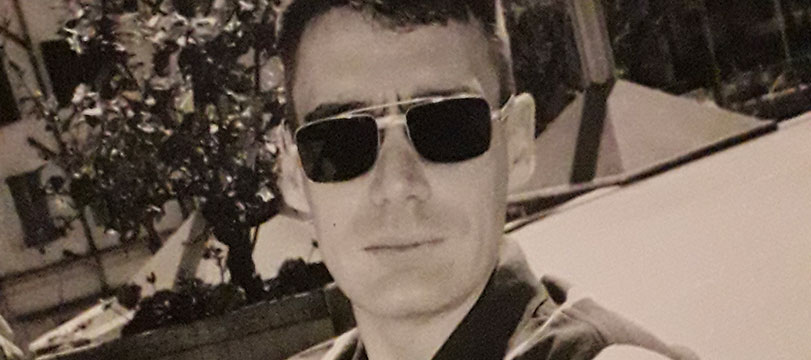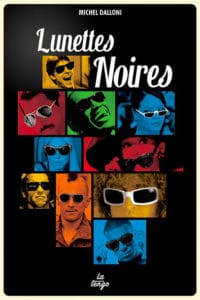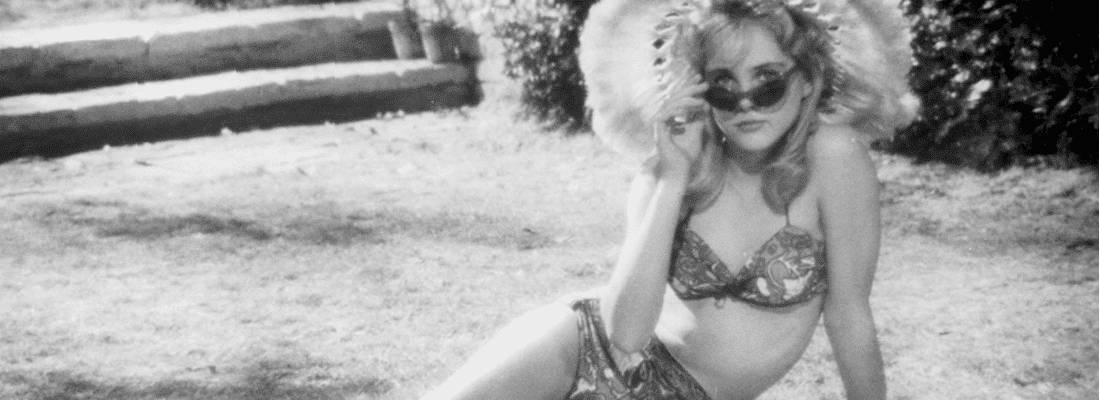
02:54 -
© Michel Dalloni
Michel Dalloni, the French journalist who writes for Le Monde, GQ and the biannual bookmag Schnock, has devoted an entire book to the subject of shades, Lunettes Noires, published by La Tengo Editions. Here, he fills us in on his favorite brands and designers, the symbolism of sunglasses and the stories he’s collected over the two years he spent writing and researching.

© Lunettes Noires / Michel Dalloni
“There were already lots of books about glasses in general, but not about sunglasses. They might take up a chapter in them. As a journalist, I am passionate about the everyday objects we use without thinking about their provenance. But these accessories have fascinating stories to tell, whether they involve people (designers, collectors or those who wear them) or their different uses. I’m also 62 years old and grew up seeing glasses being worn in the spheres of film, music and sport. I remember racing drivers and actors who had great glasses.”
“I would say Persol for Steve McQueen, Marcello Mastroianni in Divorce Italian Style and the sensual quality of the acetate. And Ray Ban, which has the same status as a brand like Coco; it goes beyond the commercial side. I still have the Ray Ban Aviators my American aunt gave me when I was 15 years old. Buying a vintage pair from the 60s or 70s is a safe bet. Whereas clothing from the same era may well have worn out by now, eyewear by these brands remains unchanged because of its quality – the lenses still provide protection from the sun.”

© Alain Mikli
“I really admire Victor Bitchatchi, behind the Vito Paris brand, an underappreciated optician in the 60s, who was both brilliant and forward-thinking. In the book, I talk to the amazing Alain Mikli, his spiritual son. He was very daring in terms of the shapes and colors of his glasses too.”
“One was when Alain Bashung appeared on stage at the Victoires de la Musique (the French equivalent of the Grammy awards), shortly before he died. He had cancer and really wasn’t well, yet his voice was unchanged. He was dressed stylishly in black and wore a hat, as well as Persol shades. In being prevented from meeting his gaze, you couldn’t feel sorry for him. You could look him in the face, but not in the eyes. It was an emotional scene and his shadowy figure remains fixed in the memory; he was classy to the end.”

© Lolita / Stanley Kubrick (1962)
“He’s got a point… it is a bit like facial hair (laughs). Putting on glasses is dressing-up. You become someone else. You might not even be recognized in the street. If Naomi Campbell or Tom Cruise wear glasses, they become sex symbols. That’s the magic of them. If a fighter pilot wears them, they’re a hero. And if a cop wears them, they either convey law and order, or possibly brutality of some form. In the blink of an eye, you can communicate something that gives rise to various feelings in whoever is looking. It could be seductive, with a powerful erotic dimension (taking them off being akin to undressing) or create fear, like Gaddafi or Hitler. Depending on the intention, you can intrigue or frighten. Their status is ambivalent and differs according to what the person wearing them wants to show or hide. It’s Eros and Thanatos. They reveal human nature. Why do we want to block out the light? Or stop someone looking into our soul? We can disguise ourselves while remaining who we really are, see without being seen, become inexpensively stylish and make ourselves inaccessible with an accessible accessory. After all, Dior glasses cost less than a Dior dress or suit.”
Michel Dalloni – Lunettes Noires (La Tengo Editions)
Written by Eleanor Fullalove